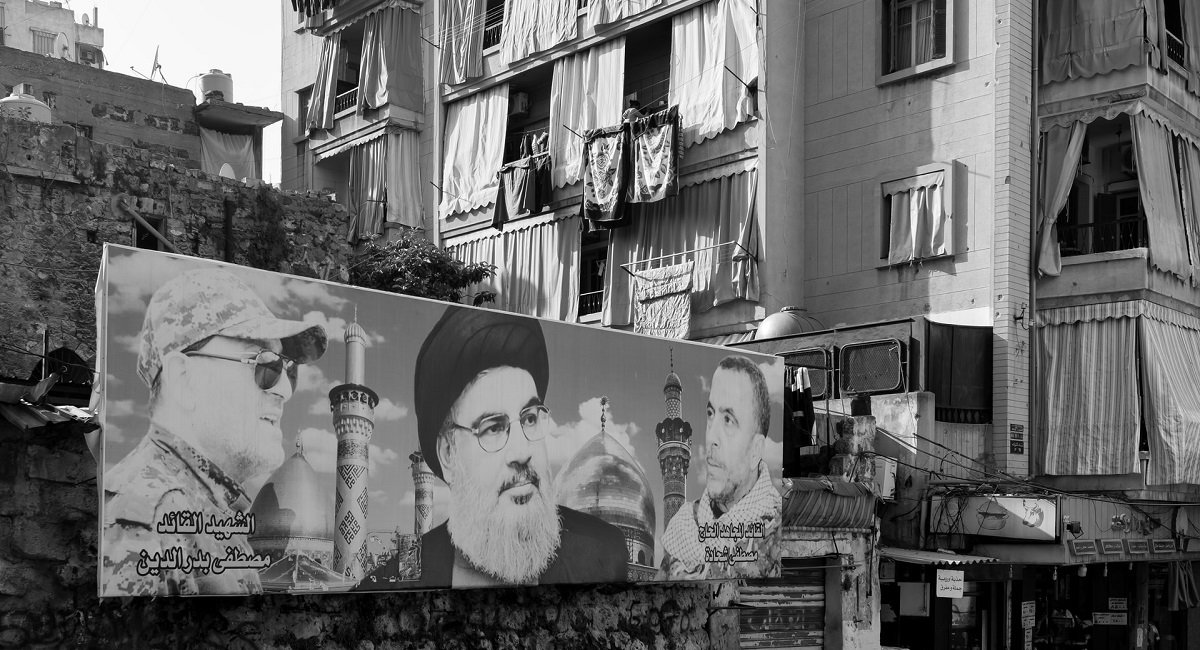

Photo by Maxime Guy on Unsplash
A credible process for formulating national defense and security strategy documents undermines nonstate actors.
It is irrational that a country does not follow a process for elaborating its defense and security documents. The absence of such a process dilutes responsibility and hinders the nation from exercising a monopoly on the use of force in its territory. Nonstate actors lounge in this grey zone, both in power and out of power. While stating that they will relinquish their weapons when the state is capable of defending the country, they use their positions within the government to block any serious move to enable the government to achieve that monopoly of force, such as the creation of a process for elaborating national defense and security documents.
In Lebanon, crafting national security guidance is removed from its technical context. Instead of following interests and objectives, national strategy in Lebanon is subordinated to the narrow calculations of the country’s competing political-sectarian elites or the preferences of external allies and patrons. The result is a failure to define even a rudimentary set of national interests, and, with that, the persistent misuse and perversion of national security statecraft precludes genuine debate on strategic policymaking.
If Lebanon is to be a sovereign nation, and if the Lebanese state is to be more than a metaphor for competing clientelist and sectarian interests with no competence in national security, crafting national security guidance will have to return to its technical origins as a persistent tool of statecraft.
Defining National Interests
Lebanon’s repeated failure to define its national interests shapes the challenge of crafting national security guidance. The most recent defense law (Decree 102 of 1983) defines foundational concepts related to national defense, including the organization of the Lebanese Armed Forces (LAF), general regulations, administration, and defense economics. However, it does not offer a credible model for institutionalizing national security planning and guidance.
This law grew out of step with the realities of post–civil war Lebanon’s contradictory national security priorities and challenges. Lebanese presidents initiated strategic defense reviews, improperly labeled as "defense strategies." Facing the impossible task of reaching consensus within the Council of Ministers, they resorted to so-called National Dialogue roundtables that brought together leading political and sectarian factions.
Though Lebanese ministries have tasks and missions, no official document describes a process that links their efforts in a sequenced manner. A mechanism for elaborating and crafting national security guidance would serve as a dependable and indispensable basis for institutional defense and security planning. Instead, national security agencies have little alternative other than to rely on statements, such as the president's constitutional oath and the Council of Minister’s policy declaration. These oaths and declarations have always been the subject of deep scrutiny by nonstate actors, and were sabotaged when countering these actors’ interests, rendering them useless for elaborating credible national defense documents.
Shaping a Credible Process
A credible process for crafting Lebanese national security and defense guidance needs to be grounded at four institutional levels, tying policy to strategy and allowing national security agencies to produce their own guidance documents. At the first and highest level, the Council of Ministers must elaborate a national policy for security and defense (NPSD). An NPSD would help inform the second institutional level, whereby the Supreme Council for Defense can develop a coherent national strategy for security and defense (NSSD). Once an NSSD based on the NPSD is fleshed out, the Ministry of Defense should have the wherewithal to develop a national defense strategy (NDS), which in turn can inform the LAF’s national military strategy (NMS).
Such a clear process will empower the concerned actors at all levels and clarify their responsibilities. This will dissipate uncertainty about where nonstate actors operate. It will also seriously cripple their influence by providing clear and unambiguous policy guidance, priorities, ways, and means for security agencies, and allow the state to assert its monopoly of force and assume responsibility for the nation's actions in war and peace.
None of these four levels currently contribute to creating a national security strategy. In 2013‒2020, planning has been limited to force upgrades at the level of the LAF, under the guise of two capabilities development plans, spanning 2013‒2017 and 2018‒2022. The absence of level one, two, and three documents on national security guidance has limited the LAF to working partially from the bottom up, which is both ineffectual and counterintuitive given the need to define and deploy scarce national resources for security and defense.
If Lebanon is to develop credible guidance on national security and defense, it will need consistent effort at the top three levels to adequately plan and determine the force and capabilities needed to allow the military to fulfill its missions. Failing that, Lebanon will continue to plan haphazardly for the upgrade of a legacy force that lacks clarity on strategy, ways, and means, let alone intent.
Maroun Hitti is a retired brigadier general. He served at LAF HQ as director of operations (2008‒2012) and deputy chief of staff for planning (2012‒2016).



